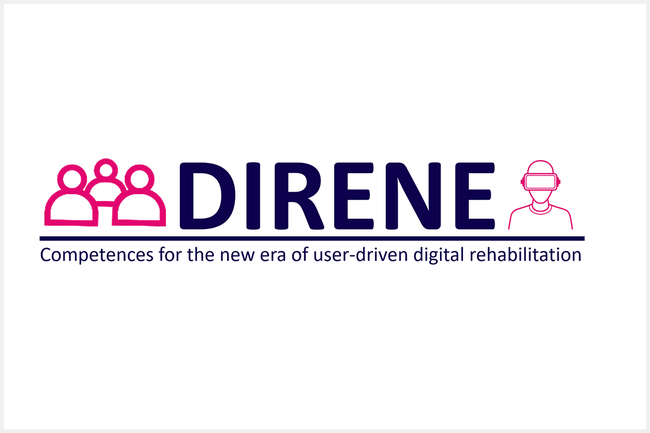New ways by digital technologies
Exchange about Megatrends in Digital Rehabilitation by Participating in the European Project DIRENE. A Follow-Up on an Online Conference.
The project DIRENE aims to further develop digital competences of lecturers, students, and therapists in nursing and rehabilitation to adopt new patient-centred approaches to health care and prepare for future challenges. The project, which is funded by Erasmus+, involves a multidisciplinary team of experts of
- the St. Pölten University of Applied Sciences (Austria)
- the University of West Attica (Greece)
- the JAMK University of Applied Sciences (Finland)
- the University of the Balearic Islands (Spain), and
- Hochschule für Gesundheit (HS für Gesundheit) in Bochum (Germany).
From 2 November to 4 November 2021, the project partners presented their interim findings during a transnational project meeting held in Palma de Mallorca.
Interim Findings
The working group led by Christian Grüneberg, head of the physiotherapy division at HS Gesundheit, is dedicated to identifying megatrends in digital rehabilitation. The broad spectrum of digital rehabilitation includes aspects such as
- mobile health (mHealth),
- health information technology (IT),
- miniaturised (portable) devices,
- exoskeletons,
- telerehabilitation and personalised therapy
- and rehabilitation.
“Digital technologies ranging from mobile apps and software applications that support health professionals in their clinical decision-making to artificial intelligence and machine learning such as chatbots for diagnostics and intervention have revolutionised health care in the past and will continue to do so in the future,” says Grüneberg.
"This requires a realignment of interactions in the relationship between health professionals and patients or users”, adds Angela Arntz, who is a member of the research project at HS Gesundheit.
Next Steps
Under the motto of “Health Fiction and Good Science”, the consortium uses their research on the identified megatrends and their potentials to develop a curriculum and explore how to design learning processes to successfully implement digital technologies in rehabilitation in a patient-oriented and sustainable manner.
In addition, a cooperation with associated partners from countries in Africa such as Kenya, Tanzania, Malawi, South Africa, and Ghana enables the team of experts to engage in knowledge transfer and exchange and thereby make an important contribution to global perspectives. "Despite the difference between the European and the African countries when it comes to technical conditions, our associated partners have emphasised that the affinity for digital technologies in rehabilitation is already being used in many African countries under their respective framework conditions. The partners stress the importance of digital technologies in these countries, for example, in addressing shortages in health care”, Grüneberg summarises the exchange.
Further aims: Handbook and learning Module
The newly gained findings are supposed to serve as the basis of a handbook and a learning module that will provide freely available learning materials for teachers, students and therapists in the field of nursing and rehabilitation.
The next results will be further developed and tested at symposia of the DIRENE project group in Finland in early April 2022 and in Austria in mid-June 2022. The project runs until the end of March 2023.
